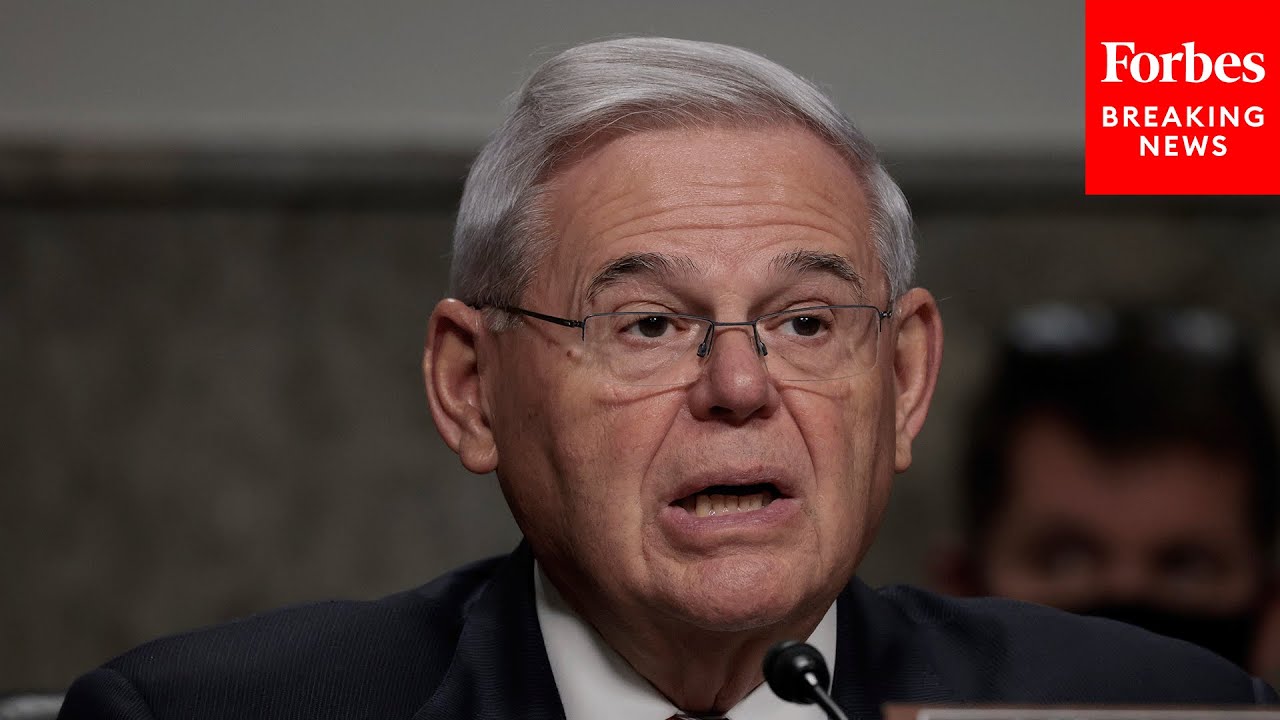'Would It Be Easy To Put The Genie Back In The Bottle?': Menendez Frets Over Fallout Of Us Default
Unleash Your Creative Genius with MuseMind: Your AI-Powered Content Creation Copilot. Try now! 🚀
The United States has long held the position of the dominant reserve currency in the world. This means that the U.S. dollar is widely used and accepted in international trade and financial transactions. Approximately half of international trade is invoiced in dollars, and nearly 90 percent of all foreign exchange transactions involve the U.S. dollar. This status has provided immeasurable benefits to the American economy and our foreign policy goals.
The Benefits of Being the Reserve Currency
Being the dominant reserve currency comes with great benefits. It allows American consumers to borrow more cheaply, making it easier to finance purchases such as a house or car. Additionally, it allows the U.S. government to use economic sanctions as a tool to influence the behavior of other countries. By controlling the global financial system, the U.S. has the power to avoid military conflicts and promote its geopolitical interests.
The Risk of Defaulting on Debt
However, this status as the dominant reserve currency also comes with great responsibilities. The most significant risk to this position is the possibility of the United States defaulting on its debt. If the U.S. were to default, it would severely undermine its position as the global reserve currency. Investors would lose confidence in the U.S. ability to repay its debts, and they would shift their investments elsewhere.
The Far-Reaching Consequences of Default
The consequences of defaulting on debt go beyond just the economic impact. Geopolitically, it would diminish the influence of the United States on the world stage. For example, when Russia invaded Ukraine, the United States froze Russian dollar reserves as a form of economic sanction. However, if the U.S. were no longer the reserve currency, it would lose the ability to impose such sanctions effectively. China, a formidable competitor, would also become an even stronger player in global financial markets, accelerating the shift of reserve portfolios away from the U.S.
The Benefits of Having a Reserve Currency
Having a reserve currency benefits not just the United States but also the entire global economy. Transactions conducted in a common currency are cheaper and more efficient, enabling smoother global trade and investment flows. If the U.S. were to give up its creditworthiness and the world sought another reserve currency, it would hand that opportunity to China, which could have far-reaching consequences.
The Irreversible Damage of Default
Once the trust in the U.S. as a reliable debtor is lost, it becomes nearly impossible to regain that confidence. Defaulting on debt would have lasting effects on the U.S. financial system and its interests at home and abroad. In 2011, even the threat of default led to a credit rating downgrade, which took years to repair. Defaulting on debt would cost the U.S. not only in the form of higher interest rates but also in the loss of funding for critical areas such as education, healthcare, and defense.
The Role of Responsible Fiscal Policy
While it is important to address spending cuts and manage the federal deficit, it should not come at the expense of slashing vital discretionary funding. For instance, cutting funding for programs like the Child Care and Development Block Grant (CCDBG) would have far-reaching consequences. Child care providers rely heavily on federal funding to support low-income families, and any cuts to the program would result in the loss of services for vulnerable children and families. This would not only devastate the child care sector but also have economic implications, affecting parents' ability to work and contribute to the economy.
Conclusion
The United States' position as the dominant reserve currency has provided significant benefits to the American economy and its foreign policy goals. However, defaulting on its debt would jeopardize this status and have far-reaching consequences. It would not only undermine the country's economic stability but also diminish its geopolitical influence. Maintaining responsible fiscal policies and ensuring the stability of the U.S. financial system is crucial to preserving the benefits that come with being the global reserve currency.

Related Recaps
- Your League Mates Do NOT Want You to Watch This - Combine Risers & Fallers | JWB Dynasty Digest 116
- Armed man arrested at Robert F. Kennedy Jr. campaign event
- Bundestag: Aktuelle Stunde - "Ein Jahr nach Butscha" am 29.03.23
- 7 Things Only Fake Friends Do
- Biden says U.S., Canada are two countries with ‘one heart’